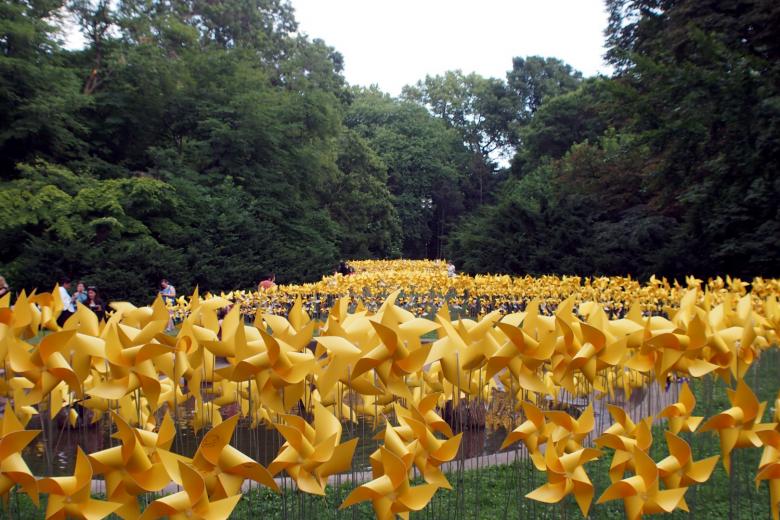The Pinwheels of Brooklyn
In celebration of Prospect Park's 150th anniversary, the famous Brooklyn park's Rose Garden has been taken over by 7,000 yellow pinwheels per a design by Reddymade Architecture and Design with AREA4.
Although at first glance The Connective Project, as the temporary installation is called, seems frivolous, it draws attention to a forgotten part of the park and taps into its history. When designed by Frederick Law Olmsted and Calvert Vaux in the 1860s, what became the Rose Garden was actually intended as a children's playground, complete with a horse-driven carousel. Instead, around 1885 the area was planted with roses, organized about three pools with goldfish and lilies. In 1969, long after the roses were gone, the city installed fountains in the pools, but those promptly broke and have never been fixed. So although it's called the Rose Garden, the area is merely a series of three dry pools surrounded by grass and trees.
Enter The Connective Project, which was conceived and developed by AREA4 and designed by Suchi Reddy of Reddymade Architecture and Design. The 7,000 yellow pinwheels hark back to the garden as a shortlived setting for colorful flowers. Although the pinwheels all look the same, they come in different sizes and many have been crafted either by artists (per an open call with HLK Art Group) or by children who drew on them on-site. The result is thousands of variations on a theme – just like real flowers.
World-Architects visited during the installation's short run (from 7 July to 17 July 2017) and snapped these pictures and a video.
Finally, watch the pinwheels spin in the summer breezes:




